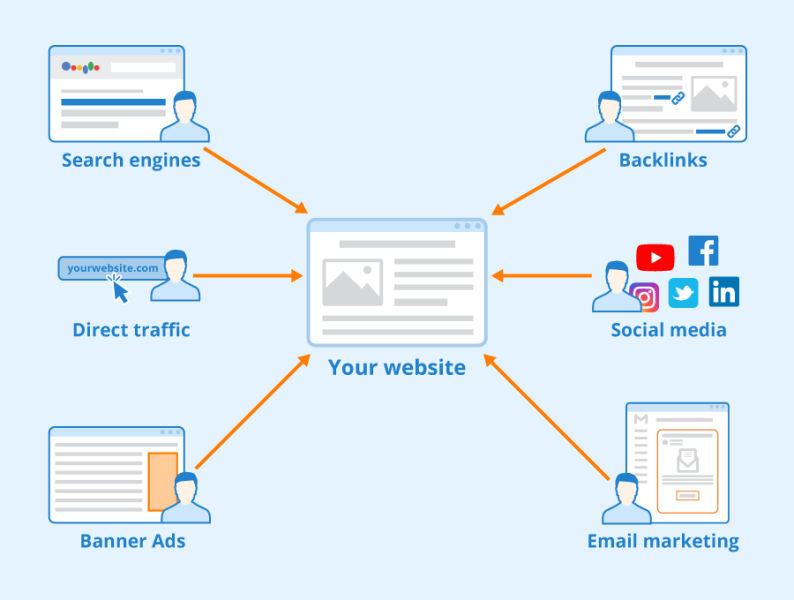In the ever-expanding digital landscape, driving traffic to websites remains a significant challenge for many businesses and website owners. In pursuit of quick solutions to boost their online presence, some resort to purchasing web traffic. While this may seem like a promising shortcut to increase visibility and engagement, buying web traffic often leads to several detrimental issues that can harm a website’s performance, credibility, and long-term success.
Quality vs. Quantity Dilemma
Table of Contents
One of the fundamental problems with buying web traffic lies in the trade-off between quality and quantity. Services offering bulk traffic packages at low prices often deliver visitors that are not genuinely interested in the website’s content or services. Consequently, this influx of irrelevant or bot-generated traffic can inflate visitor counts but fails to convert into meaningful engagement, such as conversions, leads, or genuine interest in the site.
Negative Impact on Analytics and Metrics
Purchased traffic can significantly skew important website metrics and analytics. Inflated traffic numbers might give a false sense of success, making it challenging to accurately assess genuine user behavior and make informed decisions. It affects crucial metrics like bounce rate, session duration, and conversion rates, rendering them unreliable for assessing actual user engagement and preferences.
Quality of User Experience
Authentic user engagement and interaction are vital for the success of any website. However, purchased traffic rarely comprises users genuinely interested in the site’s offerings. As a result, these visitors are unlikely to engage with the content, products, or services, leading to poor user experiences. High bounce rates and low session durations from disinterested visitors can signal to search engines that the website lacks value, potentially harming its search engine rankings.
Search Engine Penalties and Repercussions
Search engines, like Google, prioritize delivering quality, relevant content to users. Buying traffic violates these search engine guidelines as it artificially manipulates visitor numbers, leading to potential penalties. Search engines may detect abnormal traffic patterns and penalize the website by lowering its ranking or removing it from search results altogether, severely damaging its visibility and credibility.
Security and Reputation Risks
Purchased traffic often includes bots, click farms, or low-quality sources that might pose security threats to the website. Additionally, associating with such sources can tarnish the website’s reputation and brand image. Being linked to suspicious or unethical practices can deter genuine visitors and potential customers, impacting the site’s credibility and trustworthiness.

While the allure of instant website traffic may seem appealing, the drawbacks and risks associated with buying web traffic outweigh the short-term benefits. Focusing on organic, high-quality traffic generated through content relevance, SEO strategies, social media engagement, and user-centric approaches remains the most sustainable and effective method for long-term success.
In essence, building a reputable online presence demands patience, dedication, and ethical practices. Investing time and resources into creating valuable content, optimizing user experience, and employing legitimate marketing strategies will yield far more significant and sustainable results than purchasing web traffic ever could.
